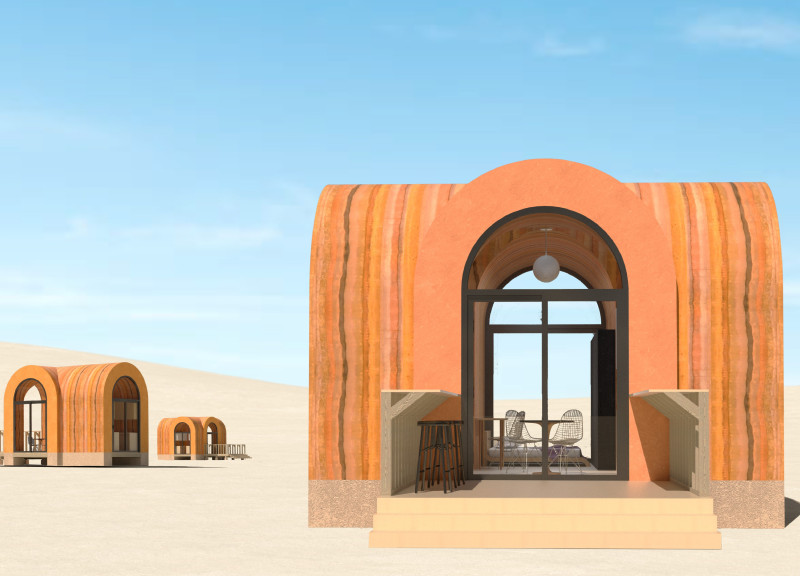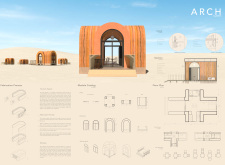5 key facts about this project
The Arch System is a modular microhome kit that emphasizes sustainability and customization. It aims to provide users with the ability to tailor their living spaces to meet personal needs. The design combines elements of traditional architecture with modern methods. The result is a structure that communicates both functionality and aesthetic appeal.
Materials and Construction
Rammed earth arches form the backbone of the Arch System. These arches are made on-site using local resources, connecting the home to its environment. This method is not only durable but also enhances thermal performance—keeping interiors comfortable in various climates. The use of natural materials adds an earthy quality to the structure, grounding it in its landscape.
Modularity and Adaptability
The design features two main structural modules, which can be arranged in different ways. This modularity allows residents to adjust their living spaces based on preferences. Users can easily add or remove arches, promoting flexibility as their needs change over time. The modules are designed to fit standard furniture sizes, ensuring that the living environment remains practical and easy to navigate.
Hidden Systems and Functionality
Key systems such as the electric battery, water tank, and water heater are integrated beneath the wood flooring. This thoughtful approach reduces visual clutter and contributes to an organized interior. The wood flooring itself adds a touch of warmth. Together, these features create a cozy atmosphere that feels homely yet modern.
Outdoor Integration
A pre-fabricated deck extends the living space into the outdoors. This feature allows occupants to enjoy fresh air and natural light, creating a connection with the surrounding area. It encourages outdoor activities and provides additional space for relaxation. By blending indoor and outdoor living, the design enhances the overall quality of life for its residents.
The Arch System reflects a commitment to practical design and environmental responsibility. Its attention to detail—from the adaptive layout to the hidden operational systems—demonstrates a thoughtful understanding of contemporary housing needs. Each aspect contributes to a functional living space that remains inviting and connected to nature.



















































